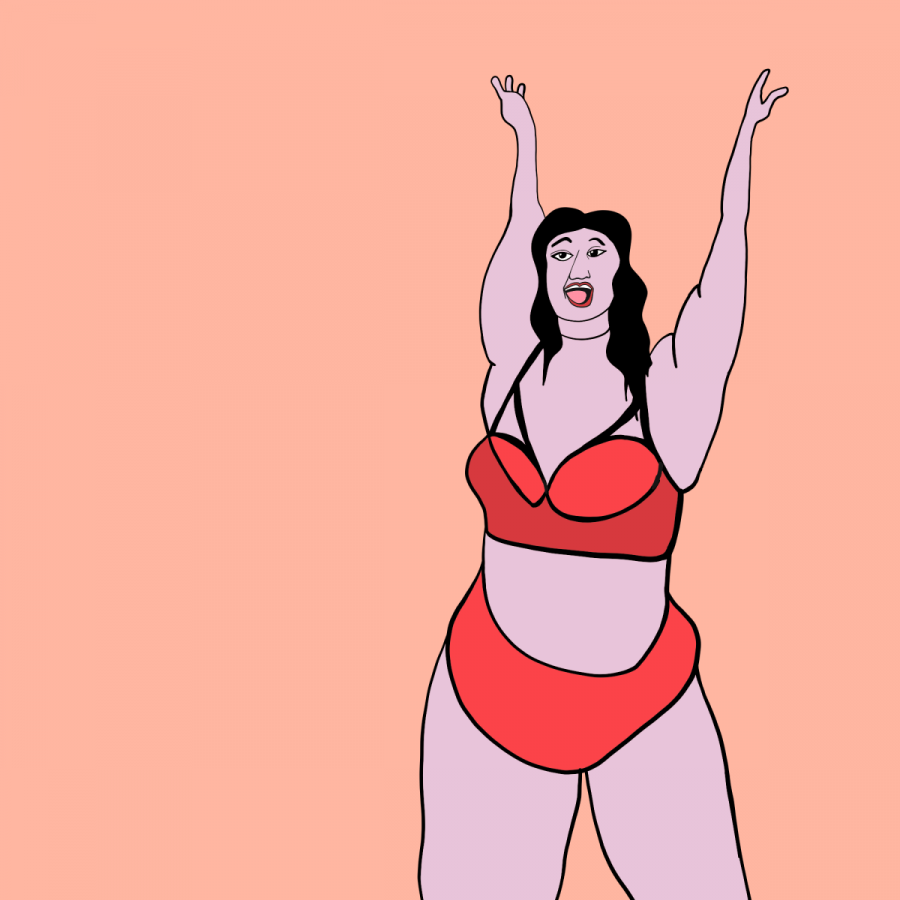Sex Ed(itorial): Having a Healthy Sex Life When You Don’t Feel Healthy
I’m Bringing Sexy Back, Rolls and All
Our bodies change a lot through the various phases of our lives, especially after starting university, but this doesn’t mean our sexualities need to change with them.
How then can one have a healthy sex life when one doesn’t even feel physically healthy, let alone sexy?
Everyone has different challenges when it comes to body image. In my case, I weigh 50 pounds more than I did when I received my acceptance letter to Concordia.
I’m not alone. A Canadian study where students self-reported their eating habits indicates a change of lifestyle leading to weight gain in some college students, despite limitations in methodology and sample size.
This reflects what most of us refer to colloquially as “the freshman 15.”
Busy schedules can make it difficult to find time for self-care, like exercising and home-cooking. I know I had less trouble managing my weight when I was eating whole foods at home, getting all my veggies, drinking more water, and making it to yoga every day.
Now, between work, lectures, papers, homework, and writing for The Link , I’m barely home, and my hours are so weird the gym wouldn’t even be an option if I did get more than five hours of sleep per night.
Striking a balance between self-acceptance and finding the will to act has been a challenge, and has redefined how I see confidence. While body positivity is important, in general and after weight gain, many people don’t feel like themselves after they put on weight.
This leads me to wonder what the best practices for healthy sexuality might be in situations like these, where a person’s lifestyle and body image may not be optimal.
I would suggest that when you have both a positive and comforting partner as well as positive self-talk, you can see a marked improvement in your confidence between the sheets and on the streets.
It could start from within, or in some cases with a support system encouraging you to be kind to yourself.
I’ve never found people saying, “You’re not fat,” “You’re thin, actually,” or “You’re beautiful the way you are” to be quite helpful. In fact, it’s annoying, because it doesn’t address how I feel about myself when they aren’t around, nor does it empower me to do anything about those feelings.
It’s best to engage in your own self-talk that acknowledges how you feel at the moment, but replaces the negative thought with a more balanced one.
During intimacy, when you find yourself wondering if your partner is noticing your imperfections, perhaps consider the possibility that they are thinking about how happy you look and how it makes them feel good, how hot you look when you smile, or simply how soft and warm you are.
If you can think of the negative they might be seeing, you should try to make a case for a positive they could just as easily be seeing.
As for lifestyle improvements, the questions to ask yourself could include: “What can I compromise healthfully,” “When can I compromise,” “What small changes can I make consistently,” and “What bigger changes do I want going forward?”
Maybe you’ll feel sexiest after yoga class, during the once-a-week slot you can afford to dedicate to it.
Breaking larger dilemmas down into manageable action plans is more sustainable, realistic, and maximizes success potential, as opposed to making huge changes you might not be able to implement consistently or sustainably.
The same goes for sex, really.
You might be punishing yourself, but for what purpose?
Instead of telling yourself you need to lose weight and change something about your body before getting intimate, maybe negotiating this with yourself based on what is realistic is best.
You deserve affection and intimacy, both where you stand and where you’re aiming to be.
As for small things you can do to make yourself feel more confident where you’re at—find lighting that makes you comfortable, a partner that is comforting, and an outfit you find flattering. Remember that no one should be remotely as critical of you as you are to yourself.
Listen to music that makes you feel sultry, remember that candlelight looks good on anyone, and spend some time in front of a mirror to get to know yourself and how to emphasize the things you do like.
You don’t need to do six months of yoga or stop eating the croissants you love to finally feel confident. I learned, through my experience, that I can feel confident and attractive at every phase of my journey.
I went from using food as a punishment and reward because of my weight to just setting movement goals and finding ways to motivate myself to attain them.
This shift from a punitive approach to a challenge approach is kinder to the self and fosters a sense of achievement rather than punishment.On the way to where you want to be, you are still a human being who may want to engage in a healthy sexuality and feel good where you’re at.
You are no less deserving of these things than someone already at your goal. You might be punishing yourself, but for what purpose?
Telling yourself you don’t deserve to feel comfortable because you don’t look the way you want is like saying you don’t deserve to smile because you don’t like the way you look when you do.
It’s self-punishing, and it’s making you miss out on so much joy and happiness that you deserve as much as anyone else.
Get your beautiful body into that bubble bath and let it be loved.
If you truly are unhappy with how you look and feel right now, how do you get comfortable without apologizing for your body?
Firstly, you owe no one an apology or explanation. Anyone who has access to intimacy with you owes you acceptance and respect.
Where you are now, as well as everywhere you’ll ever find yourself, you are worthy of love, affection, and intimacy.


_600_832_s.png)



_600_375_90_s_c1.jpg)
